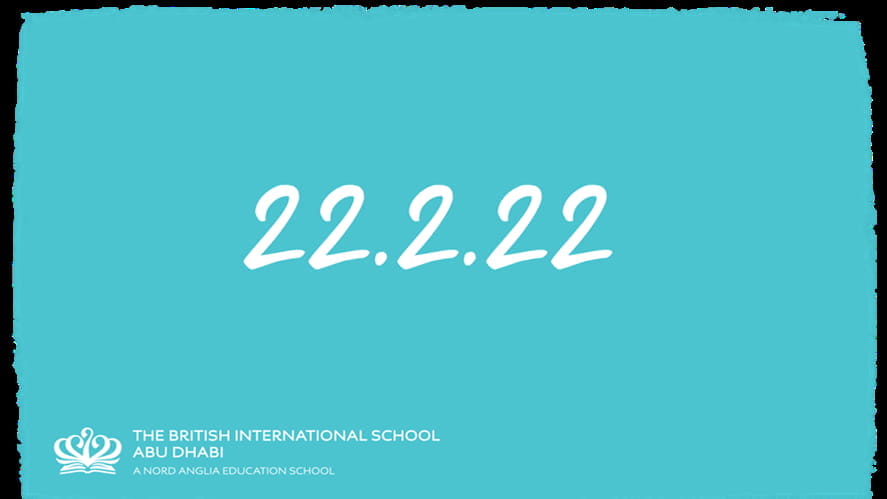Admissions are now open for 2025/2026
Contact our Admissions Team today!

Tuesday this week is the 22nd February. But there is no fun in writing it like that. It is 22-02-2022. Read that again. Backwards. It’s a numerical palindrome. It is even more fun at twenty-two minutes past ten in the evening when (with the 24 hour clock at least...) you could see 22.22 22.2.22. How exciting is that?!
Well, there might be some readers who are thinking ‘not that exciting really…’ but surely no one can deny that there is something vaguely amusing about that moment when numbers align. Doesn’t the driver in the car always get a little excited and point out to everyone else in the car when the chronometer reaches a milestone mile? From 49,999 to 50,000 is an exciting, though fleeting moment! (Or is that just me?)
I’m not much of a mathematician but I’m somewhat fascinated by the number zero, largely because for a very long time indeed it didn’t even exist. The Ishango Bone, a 20,000-year-old artefact with lines cut into it which archaeologists believe must be a numerical counting system, doesn’t have a zero, it starts with one line. The Sumerians, who basically invented numbers as we know them used tokens to count their animals. They didn’t have a zero token. Even the Romans started their numbers with ‘I’. You don’t need to count if you have nothing do you?
Gradually though humans began to understand that ‘nothing’ is in fact, quite an important concept and by the time of the Babylonians (about 2,000 BC) humans were using a space to indicate where something was not. The Ancient Greeks philosophised "how can not being, be?" and were a little confused by the concept. It wasn’t until that great trade route, the Silk Road really came into its own that what we might recognise as a ‘0’ began to be used, first by the Chinese, then the Indians and finally by the Islamic world whose great Empire helped spread the number ‘0’ – and all our other numbers, across the rest of the, then, known world.
Pythagoras wrote that the Universe is built on numbers. The great Indian mathematician Shakuntala Devi wrote ‘‘Everything around you is numbers’’. For anyone who agrees with those sentiments, today, 22-02-2022 is indeed a special day. Everyday is a number day in school and not just because we value mathematics (though we do!).
When they get home today, ask your sons and daughters how they used numbers in school. Did they measure their jump into the long jump pit or time their sprint? Did they use dates in a History class? Did they use mathematical formulas in Science? Did they discuss the importance of the Fibonacci series of numbers in Art and Design? Chances are they have used numbers many times in their learning today and they didn’t even recognise when they were doing so. So let’s talk about numbers today and stay up late to celebrate twenty-two minutes past ten…
Chris Lowe,
Head of Secondary